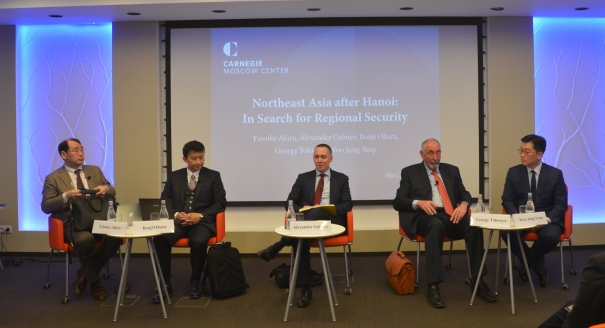Registration
You will receive an email confirming your registration.
After an abortive summit in Hanoi between U.S. President Donald Trump and North Korean leader Kim Jong Un, the state of regional security in northeast Asia has been in limbo. There is an increased risk of hostilities returning to pre-2018 levels. Challenges to regional stability are mounting amid growing tensions between China and the U.S., the collapse of the INF treaty, and ongoing confrontation between Russia and the U.S.
- What is likely to happen on the Korean Peninsula after Hanoi?
- How is great power rivalry affecting regional stability in northeast Asia?
- How is the collapse of INF and lack of progress in Hanoi affecting regional powers’ plans to develop their missile and missile-defense programs?
- Is there a way for regional powers to establish security mechanisms to decrease tensions?
These and other questions were discussed by a panel of leading scholars from Russia, Japan, and South Korea. The event was organized by the Carnegie Moscow Center.
Speakers
Taisuke Abiru is a senior representative of JBIC Moscow office.
Bonji Ohara is a senior fellow at Sasakawa Peace Foundation.
Georgy Toloraya is the executive director of the Russian National Committee on BRICS research and the Asian Security Center director at the Institute of Economics of the Russian Academy of Sciences.
Woo Jung Yeop is a research fellow at Sejong Institute.
Moderator
Alexander Gabuev is a senior fellow and the chair of the Russia in the Asia-Pacific Program at the Carnegie Moscow Center.
